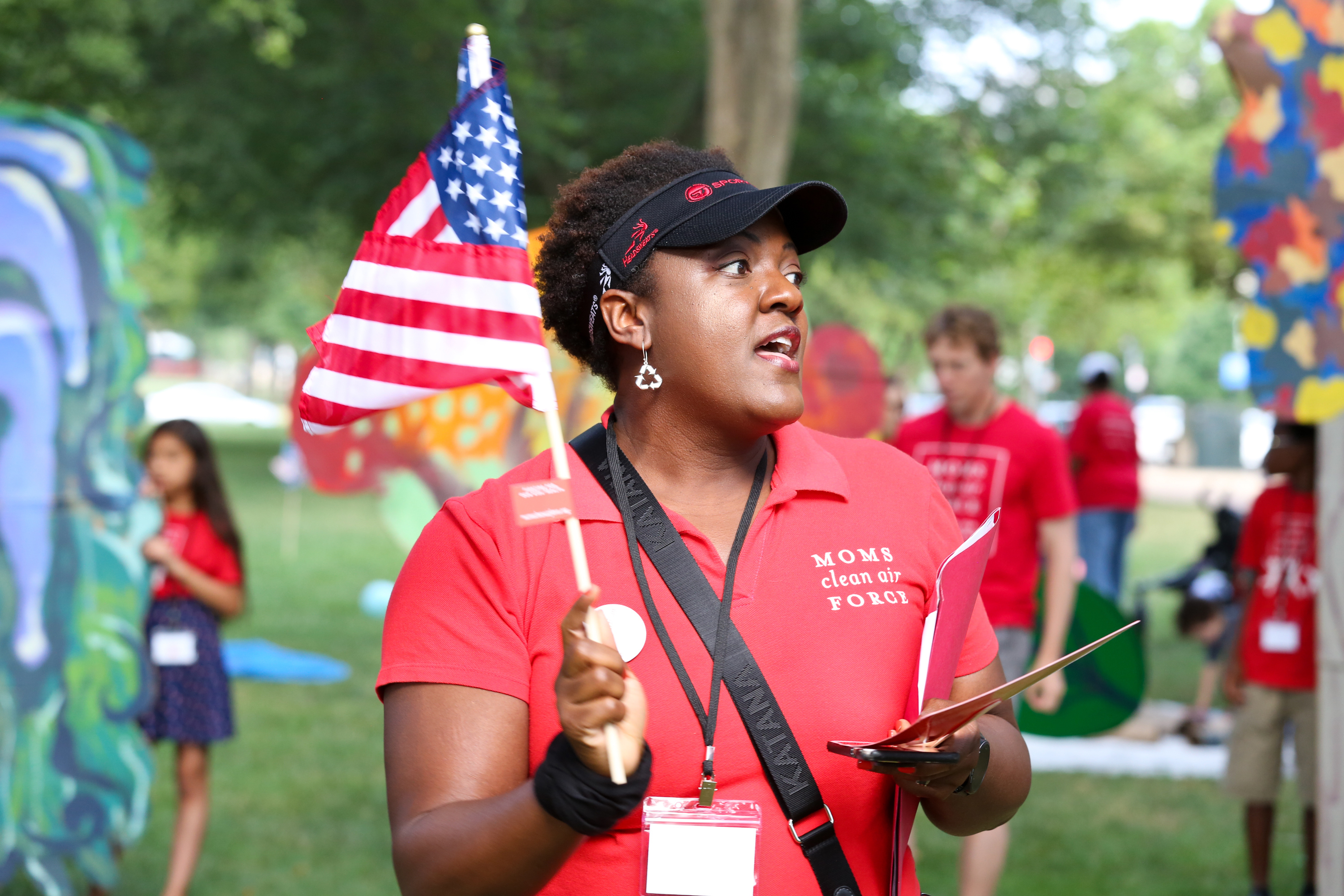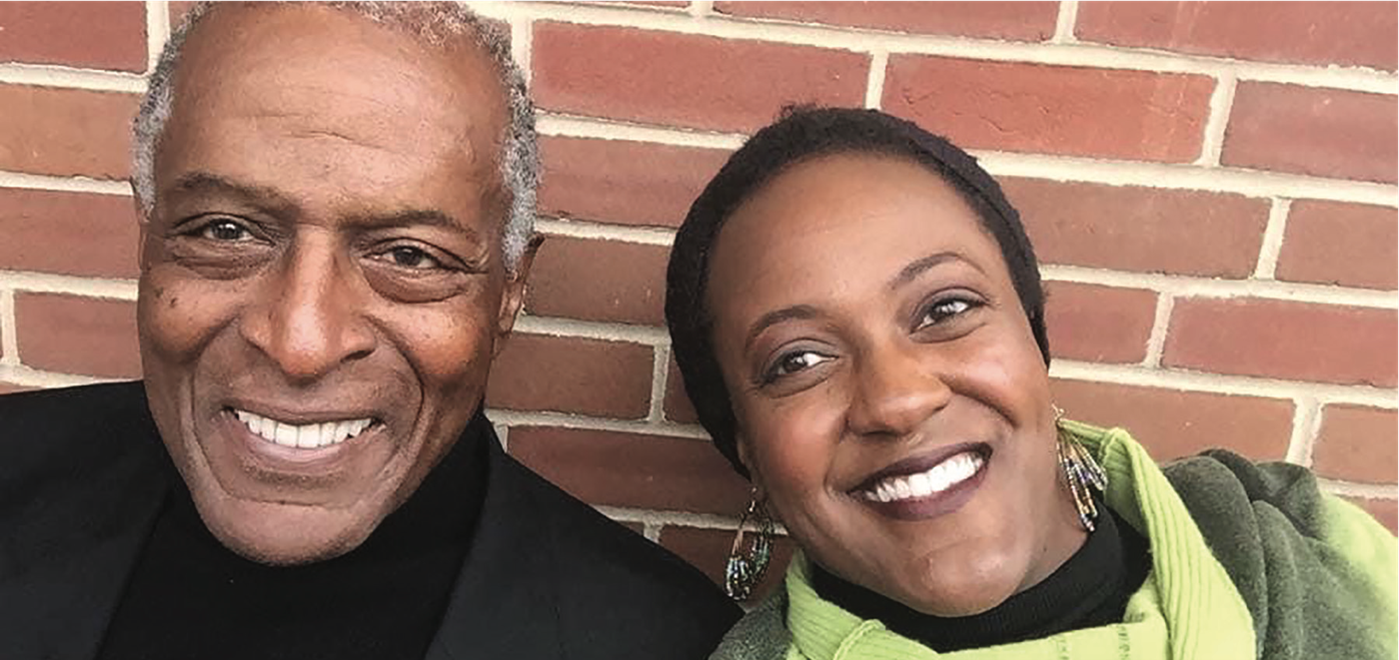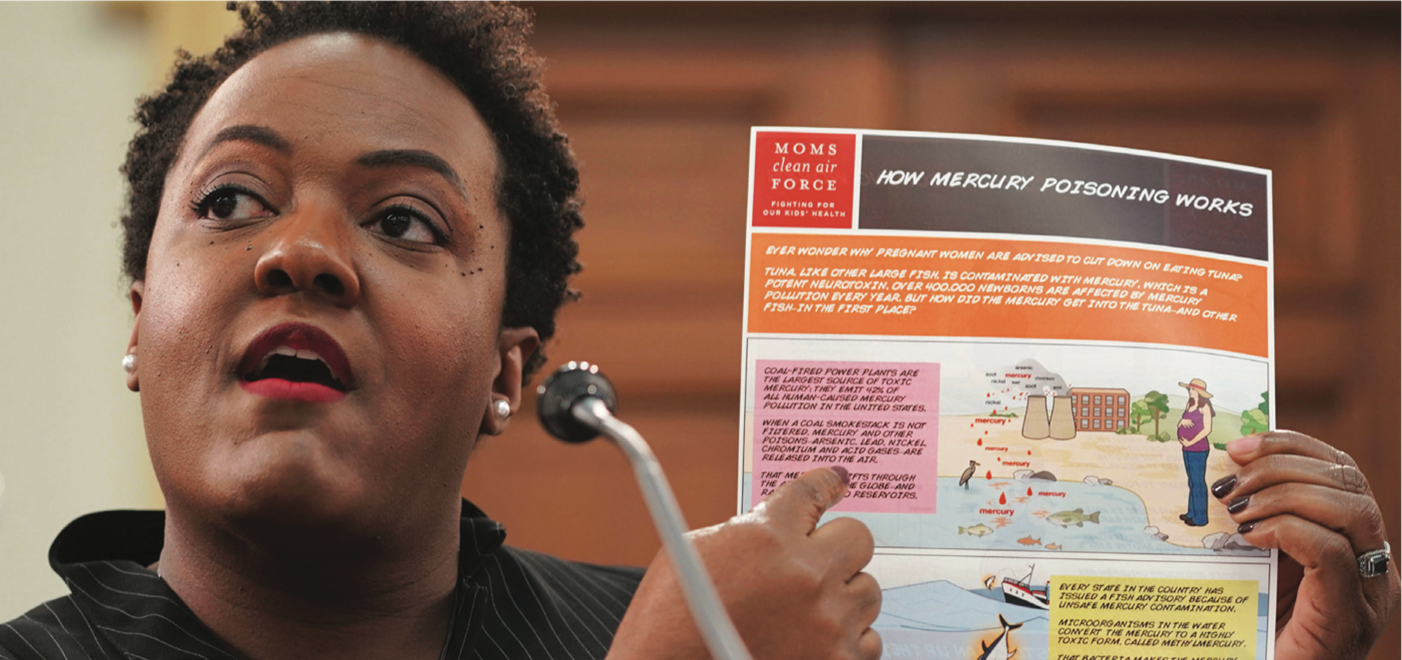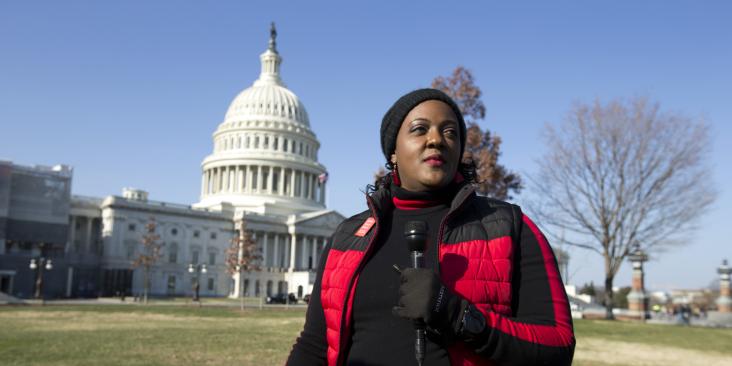Throughout her journey from mayor of Greenville, Mississippi, to EPA regional administrator under President Obama to leadership at EDF affiliate Moms Clean Air Force, Heather McTeer Toney has stood up for the historically underrepresented and stood out for her ability to work across race and party lines to solve tough problems.
At EDF, she established and led the Office of Community Collaboration and Engagement to build partnerships with frontline communities, academic institutions and civic organizations.
Now, McTeer Toney is pioneering a critically important role as executive director of Beyond Petrochemicals: People Over Pollution, a Bloomberg Philanthropies campaign that aims to halt the rapid expansion of petrochemical and plastic pollution in communities across the U.S.
In 2022, while in her role at EDF, Toney spoke with us about her path to environmental activism; her family’s roots in social justice; and the past, present and future of climate action.
Q: Can you explain how climate and social justice are linked?
A: Climate change affects everyone, but not everyone is affected equally. Communities of color and low-income communities are hit first and worst because of discriminatory policies that put them at risk for exposure to extreme weather and air pollution.
Think about heat islands in urban areas, where people suffer more heat-related incidents and illness because they’re surrounded by concrete. There are no parks and trees in these neighborhoods, and that was by design. Racist housing policies of the 1950s and '60s prevented minorities from living in white neighborhoods and relegated them to overpopulated neighborhoods that lack infrastructure development and industrial permitting constraints.
Due to lax permitting requirements, these polluting facilities were purposely sited in low-income communities and communities of color, and this is still affecting people’s health today. We see higher rates of asthma and even shorter life spans in some communities because they’re exposed to a disproportionate level of air pollution.
Learn more about climate justice in Heather McTeer Toney’s new book

Q: How did your upbringing in Greenville influence your path?
A: It’s a big part of who I am. I grew up in a social justice household. My father was an attorney for the Center for Constitutional Rights in New York. My mom had just gotten her teaching degree. They were supposed to come to Mississippi for two years to work on voter rights, then go back to Maryland and [my dad would] get one of those big New York or Baltimore law firm jobs.
But they made a commitment to the Delta. My mom opened a Montessori school, my dad started a law practice focused on civil rights and voter access litigation. My brother and I went to social justice marches.
Q: You went to Spelman College in Atlanta. Why Spelman?
A: My mom and dad both went to predominantly white institutions, and they’d been pushing Harvard and Yale and Cornell, Stanford, the Seven Sisters [seven historically women’s colleges]. But I was dead set on Spelman.
My dad said he finally embraced it when he was moving me into my dorm. He realized just how important it was for me to be surrounded by people that he could see were concerned with my well-being. It was like, OK, we’re all Black family here.
He went to Western Maryland College when he was 16 — one of the first two African Americans to integrate the school. He was very isolated. He did not have that warm and welcoming experience, in the midst of the civil rights movement, in the midst of integration. I cannot imagine doing that at 16.

Q: After graduating, you came back to Mississippi. Why?
A: I’d seen a number of my classmates and friends from college and law school moveto Atlanta and Texas and New York and Chicago, but not a lot returning home to reinvest our knowledge in the communities that served us.
That’s when I decided to go home and work with my dad and practice law.
Q: What made you decide to run for mayor of Greenville when you were just 27 years old?
A: Being home and seeing so many needs of the Black community go unmet really irked me, to say the least. I would hear people in the beauty shop and in restaurants saying, “Who’s going to run?” In a community that was 70% African American, there had never been a Black mayor.
Q: How were you able to work with people who perhaps didn’t want you there at all?
A: We had good days, we had not-so-good days. But I had the willingness to try to figure things out and fix them. I was willing to work alongside people who didn’t necessarily like me.
And people knew me — I was the kid who came home to be of service, who you taught, who can come in and have a conversation with you and try to figure things out together.
I’ve always been around people of different faiths and backgrounds. My godparents, who are now deceased, were Jewish. We had Muslim close family friends. I was raised in a Black Baptist church. My father’s family was Pentecostal.
I was able to cross bridges that people had not crossed in the past simply because even in the Mississippi Delta, I grew up in a very diverse atmosphere.

Q: As mayor, you fought for funding to clean up the town’s tap water. Did you consider yourself an environmentalist?
A: Not at all. Because the image I saw of an environmentalist was a white person who is vegan and wearing Birkenstocks and hugging a tree. It was saving whales, protecting turtles and polar bears. It wasn’t even about people.
It wasn’t until Lisa Jackson, who came to Greenville when she was head of the Obama EPA, pulled me aside and said, “You know you’re working on an environmental justice issue.” And I’m like, “Administrator, no, I’m really not. I’m just trying to make sure the water is clean and we have economic development in our town.”
And she said, “No, no, no, no, no. These issues are tied to infrastructure in Black and brown communities.” And it changed the way I saw environmental justice.
She put me on the local government advisory committee for the EPA — and then told me to chair it. She was a huge influence as a mentor and still is today. And she charged me to be a mentor to others. Things change only as we elevate our voices in this space.
Learn more about climate justice in Heather McTeer Toney’s new book
Q: After leaving the EPA, you became a leader at Moms Clean Air Force. For readers new to the group, what makes it so powerful?
A: The organization’s message is clear: Moms will do what it takes to protect their kids from the dangers of air pollution and climate change. And they do it in a nonpartisan, fact-based way.
I’ve seen mothers going to members of Congress’ offices and totally blow them away. They’re grabbing a kid with one arm, playing on the floor — and they’re spouting data on asthma rates with their MPHs [master of public health degrees] and their PhDs.
They’re telling this congressman the exact amount of emissions coming out of plants in their districts. And these members are like, “I did not expect this today.”
Q: How did the justice awareness that Obama EPA chief Lisa Jackson ignited in you play out at Moms Clean Air Force?
When I started working with Dominique Browning, one of the co-founders, she said she wanted a very diverse, very integrated and issue-based group focusing on all children. This was not a group of soccer moms. She wanted the organization to reflect that.
So now Moms Clean Air Force includes EcoMadres — Latina moms who are galvanized around air pollution, climate change and immigration, in partnership with Green Latinos.
We also launched Community Rx, an environmental health justice campaign focused on African American communities, and Faith Force, Community Rx’s faith-based climate and environment initiative.
And we started an Indigenous women’s group that partners with Indigenous communities out West.

Q: What does your role as vice president for community engagement at EDF entail?
A: I work closely with Margot Brown. It’s about thinking through community engagement: How do we help communities understand the work we do and how we do it, and how is our work informed by what’s happening on the ground? I think of it as a midwifery position.
It’s wonderful to be a part of this journey within EDF to recognize equity and the value of diversity, and to then reiterate that out externally to communities to show them how we’re growing as an organization.
Q: Do you see any changes that are encouraging?
A: I see some of the people EDF is hiring, and the conversations that are shifting, and people reviewing things constantly and asking questions about equity. That is encouraging to me, that people are thinking through these questions and posing more questions.
And we at EDF can help. We are needed. We need corporate accountability. We need to stand up in these boardrooms.
EDF is also finding there are ancillary things we have to support to make environmental action successful. Study after study has shown that Black and brown people are the demographic that vote for climate action more than any other demographic in this country. So we have to engage in federal voter legislation if we are to protect the policies we’re putting forward.
Learn more about climate justice in Heather McTeer Toney’s new book

Q: How did you do all of this during the pandemic, with a preschooler at home?
A: Well, my son has popped his face into meetings, he has eaten his fruit snacks on camera, he has asked for juice and I’ve had to go to the refrigerator in the middle of a meeting.
My husband is awesome, and I have a teenager at home as well, so she helped out a lot.
I tell people, if you survived the pandemic at home with kids and a spouse, and you all still love each other, you’re doing really good.











